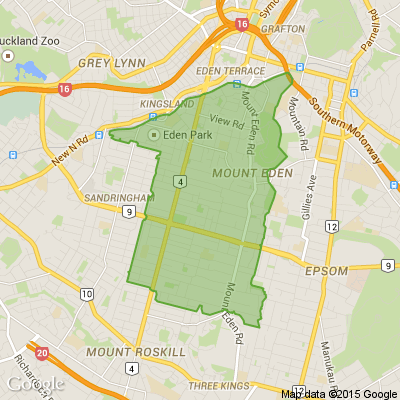

Thank you for using Neighbourly
Thank You
You may receive an email confirmation for any offer you selected. The associated companies will contact you directly to activate your requests.
6x Pretty girls long sleeve dresses 0-3 months
Rosalie from Sandringham
Cream with floral pattern, Berry Berry Ribbed, PatPat lacy white, Baby Lacy white, PatPat sleeveless cream with rabbit pattern, sleeveless green with floral pattern
Excellent condition
Price: $18
New BEGINNERS LINEDANCING CLASS
Annette from Mount Roskill
Epsom Methodist church
12 pah Rd GREENWOODS cnr. Epsom
Monday 9th February 7pm - 9pm
Tuesday 10th February 10am -11am
Just turn up on the day
Goldco Antique Buyers in Southland Region
WANTED WANTED WANTED:
Gold • Coins • Watches • Banknotes • Antique • Jewellery • Collectables
The market for many antiques, collectables, vintage watches, artefacts, gold and silver items has been buoyant these past few years. So if you are considering selling any of these or … View moreWANTED WANTED WANTED:
Gold • Coins • Watches • Banknotes • Antique • Jewellery • Collectables
The market for many antiques, collectables, vintage watches, artefacts, gold and silver items has been buoyant these past few years. So if you are considering selling any of these or similar items then our specialist buyers would like to make an offer.
Any items will be considered so please don’t be shy and visit one of our venues.
Large or valuable collections? Single items? Downsizing, moving or decluttering? Family not interested? or simply turning unwanted items into cash.
*Immediate payment made *No commission or waiting *Free no obligation appraisal *Onsite security *Please have your bank details handy
Whether you have a large and valuable collection or a single item of broken jewellery please take this opportunity to see us at a venue near you.
See us at a venue near you - See venues here:
Goldco Antique Buyers | Member NZNDA | website email: goldco@xtra.co.nz | Ph: 0800 105 228
Find out more

Time to Tickle Your Thinker 🧠
The Riddler from The Neighbourly Riddler
If a zookeeper had 100 pairs of animals in her zoo, and two pairs of babies are born for each one of the original animals, then (sadly) 23 animals don’t survive, how many animals do you have left in total?
Do you think you know the answer? Simply 'Like' this post and we'll post … View moreIf a zookeeper had 100 pairs of animals in her zoo, and two pairs of babies are born for each one of the original animals, then (sadly) 23 animals don’t survive, how many animals do you have left in total?
Do you think you know the answer? Simply 'Like' this post and we'll post the answer in the comments below at 2pm on the day!
Want to stop seeing these in your newsfeed? No worries! Simply head here and click once on the Following button.

132 replies (Members only)
Goldco Antique Buyers in the Timaru Region
WANTED WANTED WANTED:
Gold • Coins • Watches • Banknotes • Antique • Jewellery • Collectables
The market for many antiques, collectables, vintage watches, artefacts, gold and silver items has been buoyant these past few years. So if you are considering selling any of these or … View moreWANTED WANTED WANTED:
Gold • Coins • Watches • Banknotes • Antique • Jewellery • Collectables
The market for many antiques, collectables, vintage watches, artefacts, gold and silver items has been buoyant these past few years. So if you are considering selling any of these or similar items then our specialist buyers would like to make an offer.
Any items will be considered so please don’t be shy and visit one of our venues.
Large or valuable collections? Single items? Downsizing, moving or decluttering? Family not interested? or simply turning unwanted items into cash.
*Immediate payment made *No commission or waiting *Free no obligation appraisal *Onsite security *Please have your bank details handy
Whether you have a large and valuable collection or a single item of broken jewellery please take this opportunity to see us at a venue near you.
See us at a venue near you - See venues here:
Goldco Antique Buyers | Member NZNDA | website email: goldco@xtra.co.nz | Ph: 0800 105 228
Find out more

Poll: As a customer, what do you think about automation?
The Team from Neighbourly.co.nz
The Press investigates the growing reliance on your unpaid labour.
Automation (or the “unpaid shift”) is often described as efficient ... but it tends to benefit employers more than consumers.
We want to know: What do you think about automation?
Are you for, or against?

-
9.5% For. Self-service is less frustrating and convenient.9.5% Complete
-
43.4% I want to be able to choose.43.4% Complete
-
47.1% Against. I want to deal with people.47.1% Complete
218 replies (Members only)
 Loading…
Loading…
If you no longer wish to delete the message you can still 'Report the message' for review by the Neighbourly team, or simply 'Hide the message' from being seen on your own newsfeed.
Are you sure? Deleting this message permanently removes it from the Neighbourly website.
 Loading…
Loading…
- Premium Businesses
-
Richard Walker Services Handymans Services

-
Clinical Smiles Dental Clinics

-
Camellia & Co Flowers - Wedding

- Community Organisations
-
Make A Wish NZ 10 Eden Street, Newmarket, Auckland

-
Borneo Bags Unit 2, 99A Landscape Road, Mount Eden, Auckland

- View all organisations
© Neighbourly 2026












